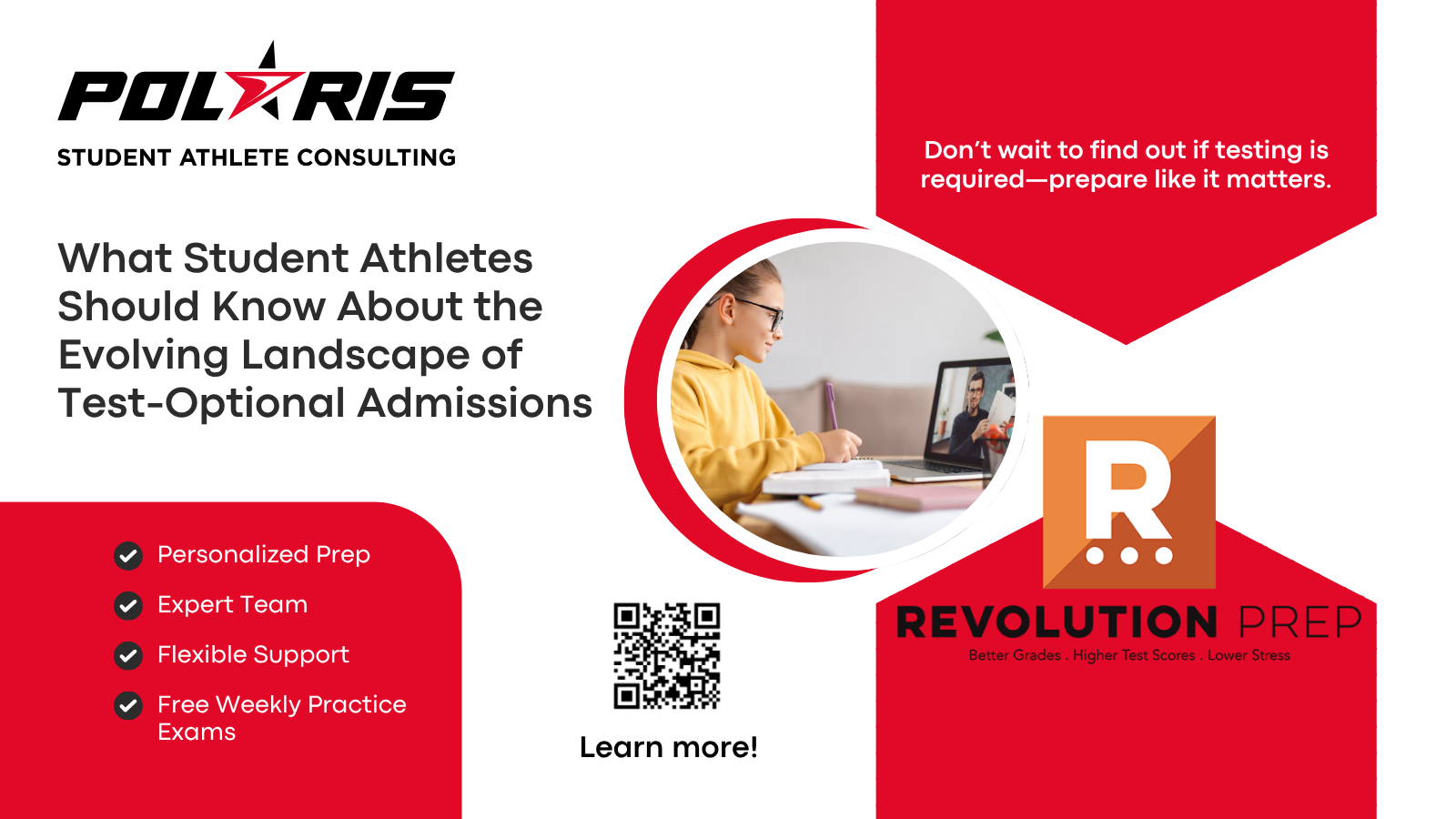What Student Athletes Should Know About the Evolving Landscape of Test-Optional Admissions
As the college admissions world continues to evolve, one trend is becoming increasingly clear: the test-optional movement is entering a new phase. For high school student athletes and their families, understanding how standardized testing fits into the college application process is more important than ever—especially when athletic recruitment is in the mix.
Even at test-optional schools, students who submit strong scores can gain a significant edge in the admissions process. While most colleges will likely remain test-optional, standardized test scores are expected to remain an important factor in the holistic review process in admissions decisions for the foreseeable future.
The Return of the Test? What You Should Know
Over the past few years, many colleges adopted test-optional admissions policies in response to the pandemic. But now, some of the most selective schools—especially highly competitive public universities often called “Public Ivies” are starting to bring back testing.
When it comes to out-of-state acceptance rates, schools like UT Austin and UNC Chapel Hill hover around 8%—comparable to Ivy League admit rates—while University of Virginia and University of Michigan range between 12–18%. It’s no surprise UT Austin was among the first to reinstate testing requirements, and more schools are likely to follow in the months ahead. According to UT News, the University of Texas at Austin received 90,562 freshman applications for the Fall 2025 semester. With this increase in demand paired with prioritization of in-state applicants, it is pertinent to note that test scores are an important part of the holistic review process.
What This Means for Student Athletes
For recruited athletes, test scores are one of several tools coaches and admissions teams use to evaluate academic readiness, especially at academically rigorous institutions. A strong test score can:
Help open doors at schools with reinstated testing
Set your application apart, even when it’s not required
Strengthen your case for merit-based aid or honors programs
For aspiring collegiate athletes at Division III institutions, eligibility begins with admission: you must first be accepted as a full-time student under the college’s standard admissions criteria. While each school sets its own requirements, standardized test scores can play a role in the holistic review process by helping demonstrate academic readiness.
Our Take at POLARIS
We know student athletes already juggle a full plate. Balancing academics, training, and recruiting responsibilities can be time consuming. That’s why we believe testing should be a part of a broader college prep strategy, not a stressor.
If your goal is to compete at a selective college, our advice is simple:
Don’t wait to find out if testing is required—prepare like it matters.
To support our families with this process, we proudly partner with Revolution Prep, a leader in live, 1-on-1 online test prep and tutoring. Their team of full-time professional tutors understands how to work with busy student athletes by offering flexible, targeted support that fits your schedule and strengthens your application.
Whether you're just starting your testing journey or looking to boost your score, Revolution Prep can help you build confidence and results.
Final Thoughts
The admissions landscape may keep evolving, but one thing remains steady: preparation pays off. Whether a school is test-required or test-optional, a strong test score can be a key differentiator, especially for student athletes competing for limited roster spots.
Success requires preparation and we can guide you every step of the way. Whether you’re aspiring to play at the NCAA DI, II, or III level or even at an NAIA institution, strong test scores can open doors, signal academic readiness, and demonstrate your commitment to success—on and off the field.

